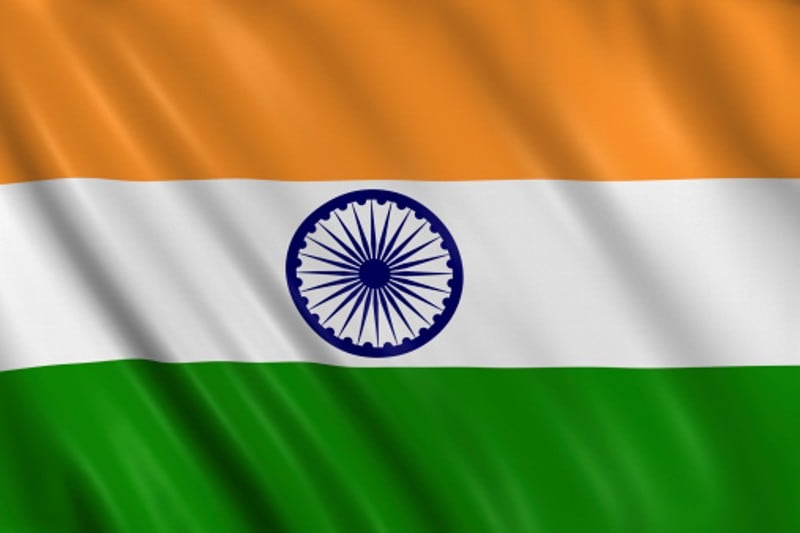Beat it: AB InBev India targets 10% energy drink market share with launch of world-first Budweiser product
Beer giant AB InBev has set its sights on conquering the energy drink market in India with its world-first Budweiser Beats product, setting an ambitious target of capturing 10% of total market share within two years despite it being a completely new sector.
AB InBev is best known for its beer brands, owning many well-known names such as Budweiser, Corona and Stella Artois in India, but recently the firm made the decision to branch out into the energy drinks segment, a completely new market for it not just in India but globally.
“Budweiser Beats is the first non-alcoholic energy drink from Budweiser globally with India the maiden country for this launch,” AB InBev India New Business Development Director Sivasubramaniam S told FoodNavigator-Asia.
‘Stamp of credibility’: India’s first certified clean label brand highlights importance of traceability to boost consumer trust
India’s first certified clean label brand True Elements has incorporated a traceability component for all its products down to the ingredient level to provide an added measure of assurance to consumers looking for cleaner, healthier products.
According to True Elements CEO and Co-Founder Puru Gupta, the firm is one of the first clean label breakfast and snacks (collectively known as ‘nashta’ in India) brands in the country, and also recently became the first Indian food brand to be certified as both clean label and 100% whole grain.
“True Elements is a proud recipient of the Clean Label Project certificate, the first food brand in India to achieve this,” Gupta told FoodNavigator-Asia.
‘Unparalleled growth and innovation’: Indian hemp industry ready for lift-off as regulatory landscape improves
India’s hemp industry is predicting a wave of product innovation, from protein bars to flavoured powders and snacks, in the wake of recent regulatory advances that will see hemp seed, oil and flour products classed as food for the first time.
Last year FSSAI finally issued a gazette notification to include regulations governing hemp seeds and seed products under the Food Safety and Standards (Food Products Standards and Food Additives) Fifth Amendment Regulations, 2021, marking the first time hemp products have been recognised as food in the country.
“[Hemp] seeds, hemp seed oil and hemp seed flour shall be sold as food or used as an ingredient in a food for sale subject to conforming to [FSSAI-defined] standards, [including adhering to specified] THC and cannabidiol (CBD) limits,” said FSSAI via the notification.
The spice is right: Indian spice producer targets the global stage with B2C nutra brand
One of the world’s largest spice producers, Synthite, has set sights on becoming a global nutraceutical consumer brand, with its market expansion plans gathering pace.
The Kerala-headquartered conglomerate also owns a chocolate business known as Paul and Mike and a real estate business known as Synthite Realty. Its nutraceutical brand, known as NatXtra – which means “natural extract”, introduced four new products last month, including Ginger for Digestive Wellness, Green Tea for Slim and Detox, Brahmi for Memory Enhancing, and CoQ10 for Fertility Enhancing.
At the moment, the company sells its nutraceutical products in the domestic Indian market as well as overseas in Dubai. Of which, its blood sugar level control product, Gymne Mag D and Ashwagandha DSTR for strength, stamina, stress relief, and mental wellbeing are its bestsellers in both India and Dubai.
Combination of two beta-glucans reduced inflammatory biomarkers in COVID-19 patients – India clinical trial
The combination of two beta-glucans produced by Aureobasidium Pullulans (AFO-202 and N-163) strains along with standard treatment was shown to reduce inflammatory biomarkers in COVID-19 patients, compared to just the standard treatment alone.
In this clinical trial conducted in India, patients who received the beta-glucans in addition to standard treatment saw a greater reduction in C-reactive protein (CRP), ferritin, and Interleukin 6 (IL-6), which are important biomarkers to predict the course of COVID-19 and risk of developing severe disease and respiratory failure.
Currently, treatment for COVID-19 involves standard care comprising of medications such as dexamethasone, azithromycin, remdesivir, as well as use of antiviral agents and immunomodulators to control inflammation by preventing a cytokine storm and further tissue damage.
“With some vaccines approved and a variety of vaccine candidates under investigation and in clinical trials, adjuvants have been advocated to overcome challenges of low immunogenicity and inefficient protective immunity,” said researchers from India and Japan who conducted the current study.





